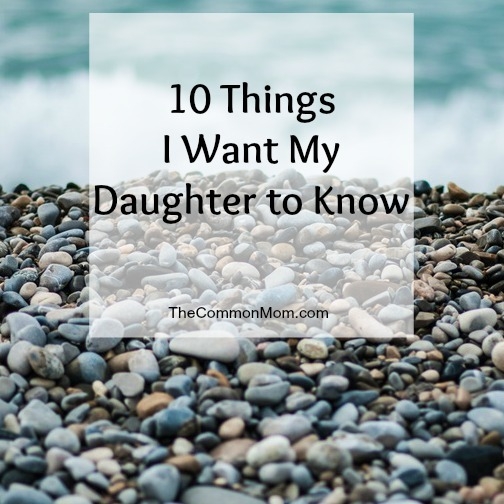She’s getting ready to turn 10. It’s a milestone and those don’t come around as often as when they’re little. No more first steps or first words to celebrate.
Now the milestones slip by almost unnoticed.
Like when I saw her not be annoyed by the little kid but she took the time to play with her. She showed patience and took joy in having someone look up to her. My heart sang.
Like when she prioritized her homework and violin practice for the week without being reminded (harangued) I could see the responsible young woman she’s becoming. My heart swelled with pride.
Raising daughters isn’t easy. That said, raising my gifted daughter has been the greatest challenge and greatest joy of my life.
I Want You to Know
- Gifted is just a label. It defines you no more than your eye color does. In the grand scheme of life no one cares about it. It’s what you do and how you treat others that matters.
- That gifted label does mean you’ve got potential. Oodles of potential. It doesn’t guarantee anything. So dream BIG. All that potential means you’ve got the stuff to achieve just about anything you want. But only you can realize that potential. I can help you. But the work is hard and you’re the one that has to do it. Dream BIG – the hard work is worth it.
- Grades matter – and they don’t. Sorry, life is full of gray areas and ambiguities. Start getting used to it. Grades and test scores are a way of demonstrating what you know. To get where you want to be, wherever that is, you’ll have to show you have the right to be there. Keep the long game in mind and that may mean working for good grades. Or not.
- Age doesn’t matter. I know you don’t remember the meltdown you had at age 4 when you discovered that the Monopoly game was for ages 8 and up and that meant you had to stop playing. Such a literal little girl! Age didn’t matter then. It didn’t matter when you skipped a grade. It didn’t matter when you were the youngest in the robotics class. It won’t matter until you want to drive, vote, or have a drink. Until then, forget it.
- Friends are important. Make friends with people who fill you with energy and happiness. Spend time with people who challenge you and encourage you to be your best self. Don’t worry about popularity or who’s in the “in” crowd. Popularity doesn’t last, I promise it doesn’t. Good friends are forever.
- Be kind. You can always be kind. Even when you don’t want to be (it’s ok, we all feel that way sometimes) just take a deep breath and choose kindness. It’ll pay off in ways you’ll never begin to imagine and you’ll feel better about yourself and the world. Trust me.
- Being smart is cool. Seriously, it is so freaking awesome. Don’t let anyone tell you differently or try and make you believe it’s not. If they do, they’re the ones with the problem. Walk away and don’t look back. They’re not worth your time.
- Know what else is cool? Confidence. I see it on your face more and more often as you grow up. It makes you more beautiful than you can imagine. Confidence + smarts + kindness = an unbeatable combination. Work it.
- Whatever is troubling you probably happened to someone else before. It’s probably happened to me. Maybe your dad. Or your aunt or grandma. Don’t keep it inside, we can and want to help. All burdens become lighter when shared.
- You have no bigger supporter than me, except maybe your dad. I’ve fought for you your entire life and will continue to do so – but only when I really need to. That may mean convincing the school librarian that you can check out books beyond your age range (see #4 above) or it may mean that I fight you on screen time.The goal is to teach you how to stand up and advocate for yourself. I want you to find your own voice so you can unabashedly follow your dreams. Your BIG dreams.
The Most Important Thing
Doesn’t matter if you graduate from Harvard or flunk out of high school. I love you.
Doesn’t matter what your dress size is, what color your hair is or what you have pierced. I love you.
Doesn’t matter what you become or what you do. I love you.
To paraphrase the great Snape – Always.
What things do you want to share with your daughter – or son – as they enter the tween years?
Share in the comments or let us know on Facebook!










